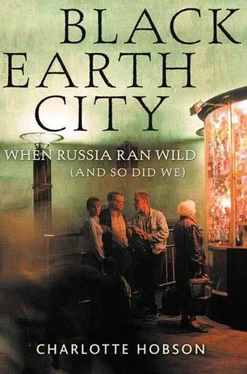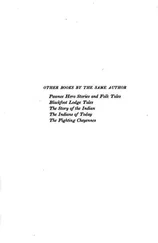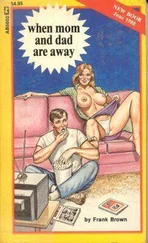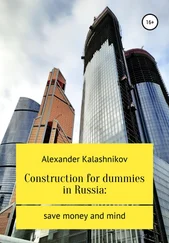“It’s a good bed,” he told me, seriously. He had two mattresses and another standing against the wall to form a sofa back. He patted them with pride. “These are my own, you see. I bought them.”
They were his refuge, his own mattresses. Sometimes he would stay on his bed until the evening, sleeping and eating pieces of bread. He was little enough to stretch out in the institutional iron bed frame, which gave the rest of us cramps and froze our toes. His possessions packed neatly into his locker. Little Pavlik, too short to kiss girls or to be popular. Brought up on Soviet rations, it was as though he had turned out regulation Soviet size, to fit the low-ceilinged rooms and the shoddy furniture without protesting.
During the course of that winter, however, something gave way in Pavlik. The teasing didn’t help. A rumor got around that at least one part of Pavlik had not been stunted by bad nutrition. The boys carried on about it when they came back from the showers, joked, and widened their eyes. Somehow this discovery gave them carte blanche with Pavlik, now that he could be envied.
“Come and have a little drink, little one,” they would invite him.
“Be careful over that crack in the floor,” some joker added.
“Drinking already, so little and yet so experienced—”
“Not so little where it counts!”
The alcohol, which Pavlik never refused doubtless played its part, too. He did not talk much when he was drunk but took to sloping wordlessly along the corridors, clenching and unclenching his fists. The tendons on his neck stood out. He, who had been so peaceable, became angry. Arguments flared up with his roommates: they were keeping him awake, encroaching on his part of the room. He stopped taking showers and grew a tufty, gingery ghost of a beard.
One day a girl from one of Pavlik’s classes dropped by to borrow a book, and he offered her tea. It was the dead time in the middle of the afternoon and soon there was a small group in the corridor marveling loudly at Pavlik’s way with women, the little devil. The girl did not stay long, and once she had left, Pavlik came out into the corridor with a bottle in his hand, opening his mouth to shout at them. No sound came out. Then he dropped the bottle and left the hostel, returning, very drunk, at midnight.
There were apologies the next day. No one really wanted to hurt Pavlik; it was just that we were all cooped up together, bored and thoughtless. From then on the boys exerted themselves to be friendly, but he was never convinced. His eyes, circled by purplish shadows, flickered warily over their faces and went blank: as he’d expected, they didn’t really mean it.
In that blank look I saw disillusion. So this is real life, he seemed to be saying. For this I bore those years in the children’s home, for this I stifled my complaints and starved. All those years you promised me that one day I would leave the institution and be a Soviet citizen, like everyone else. All lies. No one is a Soviet citizen now. Each one of us is alone, each of us is an orphan.
Pavlik cut the arteries in his wrists soon afterward. When Mitya and I came back from the cinema, there was a kerfuffle in the corridor and the komendant was shouting “Open, open up, idiot!” and heaving his shoulder against Pavlik’s door. We leaned our shoulders to the task and the door burst open. Inside Pavlik was lying on his bed smiling faintly. Blood was running down his hands and soaking into his mattresses. Seeing us, he picked up the razor and began to saw at his wounds.
“Leave me,” he whispered.
He screamed as they dragged him down the corridor, and the noise hung in the air long after he had gone. We wiped the stains on his bed halfheartedly and avoided each other’s eyes. Then Viktor announced, “Son of a bitch, I’m thirsty,” and we turned to him in noisy agreement. We sat in Viktor’s room that night.
Pavlik didn’t stay long in the hospital, but by the time he returned his possessions had been moved to a room on a different floor. We saw little enough of him after that. From glimpses in the corridor, I noticed that Pavlik had shaved off his beard and begun to grow a mustache; it aged him. A little later, two friends appeared in his life and the three of them played table tennis together. Pavlik seemed to be surviving, yet when we had first met him, only a few months before, one could see the emotions following one another across his features: fear and boredom and half-credulous hope. Now his face had settled into a single expression: the aggressive stare that had formerly seemed comic. Don’t think me sad because I am alone in the world, it seemed to say. I’ve grown strong, because I rely only on myself. You are weak: you need each other. But one day you will know what I know: each of us is alone, each of us is an orphan.
Here comes trouble: open the gates wide!
RUSSIAN PROVERB
That winter I learned a new skill: walking on icy sidewalks. It’s not as simple as it sounds. Each step must be deliberate, flat-footed, like a prison guard—no lazy, sweet swing of the hips. The bones of the pelvis, which in spring jut forward, away from the curve of the spine, in winter disappear into the flesh. The center of balance must be held exactly above the feet. The eyes must be fixed on the ground to verify each foothold, the arms must hover out from the body ready to save you if all else fails. And in my case, there was no guarantee that any of this would save me; the more careful I was, it seemed, the more capriciously the ground shot from beneath me and the bus stop reappeared upside down, with Mitya’s hand reaching from the sky to haul me up once he could stop laughing.
It was a slippery time altogether. As the temperature continued to fall, the curtains opened on a series of magic tricks that astonished us all. The world turned white and familiar shapes were shrouded. A man in a suit conjured up all the kopecks in the country and pfff! made them disappear. A one-ruble note wrapped in a handkerchief became ten rubles, then twenty-five, then one hundred, then five hundred, and finally—drum roll—one thousand rubles! As a finale, an assistant wheeled a casket on stage that contained savings accounts, hundreds of thousands of them. The audience trembled as, with a silver sword, he sliced them in half! And in quarters! And at last each little nest egg hatched into a rook and flew away. The show ran and ran: they called it hyperinflation.
Alchemy of a sort occurred that year. Even the poor became millionaires. They sold their watches and their televisions and took home wads of rubles in their place. Wallets couldn’t hold all the people’s money. They stuffed their pockets full of notes, bought Polish plastic bags to carry the loot. At first they found it hard to throw off their old-style thriftiness. They took their crisp new notes home, stashed them away with their valuables and papers, and in no time the value had evaporated and all that was left was paper. Soon we began to realize that the only sensible way to manage our personal finances was to spend like one-armed bandits. The faster the coins disappeared, the more chance we had of hitting the jackpot. As long as we were winning, it was exhilarating.
Rules for Hyperinflationary Times
1. Spend now, worry later. Never be cautious. Spend more than you earn: that way you’ll get rich. And never leave your savings in the bank. Blow it all on fur coats.
2. Don’t expect your employer to pay you. Don’t expect your employees to turn up every day. And by the way, job security is dead. You’re fired.
3. If you are a professional musician, film director, scientist, soldier, coal miner, steelworker, or academic, you’d better adapt or starve. Forget your training. Forget, above all, your career. Don’t produce anything. Don’t do manual labor. Import— export is the only way to keep your head above water. Buy and sell. Buy and sell. The faster the better.
Читать дальше












